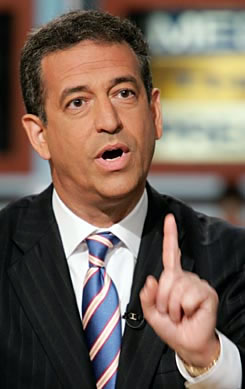fiogf49gjkf0d
By Sen. Russ Feingold
Sunday, April 05, 2009
 In recent months, Americans have been alarmed to learn about small numbers of young Somali-Americans who have left Minnesota to train or fight on behalf of a terrorist group halfway around the world. Stories of these young men disappearing, never to return, have understandably shaken up the Somali-American community, which has contributed so much to Minnesota and Wisconsin.
In recent months, Americans have been alarmed to learn about small numbers of young Somali-Americans who have left Minnesota to train or fight on behalf of a terrorist group halfway around the world. Stories of these young men disappearing, never to return, have understandably shaken up the Somali-American community, which has contributed so much to Minnesota and Wisconsin.
These tragic stories are also a reminder that what happens in countries far away can directly impact our own national security.
We learned that lesson more than seven years ago, when al-Qaida launched the Sept. 11 attacks from its hiding place in Afghanistan. Now, al-Qaida has affiliates around the world that threaten our interests. In East Africa, al-Qaida's regional network continues to plot operations, and a Somali terrorist group called al Shebaab, some of whose leaders have links to al-Qaida, is growing in influence.
Somalia is one of the world's most unstable countries, and al Shebaab has fed off that instability, as well as resentment at neighboring Ethiopia for its recent military incursion. Many young Somalis, like those Somali-Americans, have been drawn to al Shebaab by a belief that they are defending Somalia.
A Somalia dominated by al Shebaab, with its links to al-Qaida, would be a real threat to our country. That's why we can't afford to continue ignoring Somalia, as we have done since the disastrous "Black Hawk down" mission there in 1993.
The Obama administration has an opportunity to start fresh and to take a new approach that finally will give the dangerous situation in Somalia the attention it deserves. There are positive signs that the administration understands both the importance and urgency of this issue, as it begins an interagency review to reassess our approach and develop a comprehensive and long-term strategy. I look forward to the results, and I hope the president will consider stating publicly that his administration intends to make a clear break from past policies toward Somalia.
There are many things the U.S. can do to improve the situation in Somalia, which would in turn strengthen our own security. Some of the most important are:
Develop a new approach to counterterrorism: The Bush administration took a short-term approach to counterterrorism, focusing on manhunts for individual terrorists. This approach sowed mistrust among Somalis and undermined our long-term ability to work with potential partners. As counterterrorism operations continue, we need to think more about their strategic implications and potential risks. We must also reach out to all those Somalis whose aspirations include a country free of terrorism.
Help build a functional government: Creating a functional system of government that can enforce the law and provide security is the surest counterterrorism policy over the long term. U.S. support — in collaboration with regional and international partners — for the new national unity government in Somalia must be a central component of our strategy. Unless it makes a real difference in people's lives — in terms of security and basic services, from trash collection to job creation — this new government will quickly become as irrelevant as its many predecessors. The result would be continued conflict and chaos.
Address humanitarian concerns: The increasing killings and kidnappings of aid workers have made humanitarian efforts in Somalia much more difficult. The international community should take steps, working with the government and civil society, to protect humanitarian workers, ensure basic services and promote ways to investigate, publicize and punish those who orchestrate human rights violations.
Strengthen regional stability: It is impossible to separate the situation in Somalia from wider regional tensions, especially the historic tensions between Ethiopia and Eritrea, the porous border with Kenya, and instability in Yemen. Renewed engagement in Somalia requires renewed engagement with the wider region. We can start by appointing a senior-level envoy for the Horn of Africa, not just Somalia, who can drive a more comprehensive approach to the region.
It's time to give Somalia our focused attention. The Obama administration has a unique opportunity in its inaugural months to change our approach, and change the perception of the U.S. in the region - both of which are critical to our own security.
The stories of young Somali-Americans being pulled into a web of civil conflict and terrorism are tragic for their families and their community. They are also a reminder of the need to put Somalia at the forefront of our policy agenda. It's time for a U.S. policy toward Somalia that can help bring stability to that troubled nation and to the region while also strengthening our own security in the long run.
U.S. Sen. Russ Feingold, a Democrat from Wisconsin, is chairman of the Senate Foreign Relations Subcommittee on African Affairs and a member of the Senate Select Committee on Intelligence.